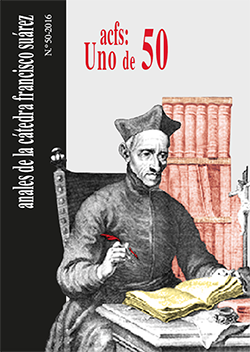Positivism and Neo-Kantism
DOI:
https://doi.org/10.30827/acfs.v50i0.5159Keywords:
legal positivism, neo-kantian philosophy, legal dogmatics, concept of the law, Rudolf StammlerAbstract
This text analyses the fall of idealism and of philosophy in general after the death of Hegelianism, a process carried out by positivism, the theory of ideologies, the philosophy of life and of existentialism. Although in legal theory and praxis legal positivism is the main protagonist, this shift results in the scientific study focused on the law, exclusively on positive law. Against the reductionism of positivism, Welzel exposes the resurgence of dualism between the concept of law and the idea of law at the hand of neo-Kantian philosophy, and especially that of Rudolf Stammler. This resurgence allows Kantian philosophy to be presented as a theory complementary to legal positivism by accepting this concept of the law of positivism, and purging it of the terminological remains of stages already overcome.
Downloads
References
HEGEL, Philosophie der Weltgeschichte.
RUDOLF HAYM, Hegel und seine Zeit, 1857.
KARL BERGBOHM, Jurisprudenz und Rechtsphilosophie, 1892.
ERICH ROTHACKER, Die dogmatische Denkform in den Geisteswissenchaften und das Problem des Historiusmus. Abhandlunger der Akademie der Wissenschaften und der Literatur in Mainz, 1954.
LUNDSTEDT, Die Unwissenschalichkeit der Rechtswissenschaft,
I, II, l,932, 1936.
AUL KOSCHACKER, Europa und das Römische Recht, 1947.
FÉLIX SOMLÓ, Juristische Grundlehre, 1917.
HANS KELSEN, Reine Rechtslehre, 2.ª ed., 1960.
RADBRUCH, Rechtsphilosophie, 3.ª ed., 1932.
RUDOLF STAMMLER, Lehrbuch der Rechtsphilosophie, 3.ª ed., 1928.
BINDER, Philosophie des Rechts, 1925.
BINDER, Grundlegung zur Rechtsphilosophie, 1935.
ERICH JAENSCH, Wirklichkeit und Wert, 1929.
HEINRICH RICKERT, Grenzen der Naturwissentschaftlichen Begriffsbildung, 1921.
Downloads
Published
How to Cite
Issue
Section
License
Authors are the owners of the rights to their works. ACFS requests that publication notice on ACFS is disclosed if they appear later in another place.

















